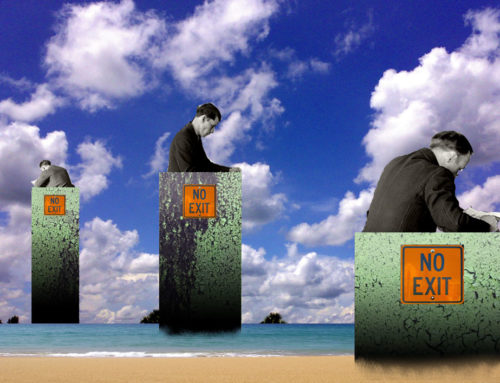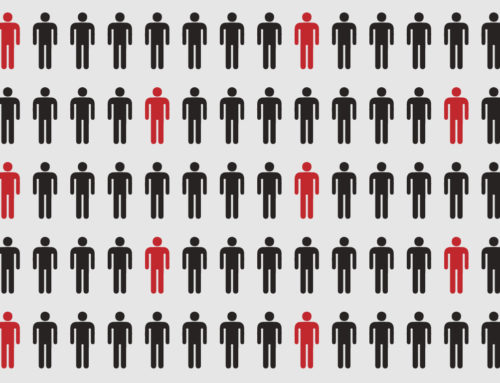by Craig Collins
Let me begin by saying that I will be using the words idealism and materialism in this article in their philosophical sense. In their more ordinary usage, idealism is considered a high-minded commitment to values, principles, and aspirations to “make the world a better place” while materialism is considered the selfish pursuit of personal gratification. This is not the way these terms will be used here.
In philosophy, idealism is the assumption that consciousness, concepts, and ideas are the essential reality. Philosophical idealism argues that the only thing actually knowable is consciousness, whereas we never can be sure that matter, energy, or anything in “the outside world” really exists. Thus, mental concepts are the only reality, not physical things (which exist only in the sense that they are perceived). For philosophical idealists, dreams aren’t a mysterious product of our brain’s sleeping state…Life itself is but a dream!
Philosophical materialism, on the other hand, begins with the assumption that human consciousness, concepts, feelings, ideas and dreams are the neurological product of our physical brains. No brains—no consciousness. Our brains are the material organs we use formulate language. Language helps us communicate and share our ideas and experiences. It weaves a fabric of culturally shared concepts to help us survive, communicate, identify ourselves as members of a society, and get our bearings in an ever-changing material universe. For materialists, our brains have evolved, biologically and culturally, to process, analyze, and share our ideas and experiences in the material universe we’re apart of.
For materialism, our knowledge, emotions, personalities, dreams and consciousness are not supernatural phenomena. They are generated by complex interactions between our genetic make-up, our senses, our nervous systems, our brains, our experiences, and our cultures and they are inseparable from all the other amazing dynamic material forces at work in the universe. Whether these forces are well understood or remain a mystery, they are not mystical phenomena; they are of this world.
Philosophically, materialism assumes that the origin, development, and demise of whatever exists is part of the universal, all-encompassing, creative/destructive dance between “energy and matter.”[1] This physical, chemical, biological, and social reality is not totally random or chaotic; it follows some underlying principles that we partially understand. Over history we have learned enough about our material world—through physics, chemistry, biology, ecology and other disciplines—to do some amazing things, like send people to the moon, cure many diseases, and devise complex technologies. When we test our knowledge by applying it to such endeavors, we find out how accurate our theories about the world actually are and what we still don’t know.
Materialists point out that the ever-oscillating reality we call the universe existed long before the evolution of our species and, therefore, human consciousness. Human consciousness doesn’t occupy some transcendent, supernatural nether world outside the material universe. It is the product of our evolution just as surely as birds evolved the capacity for flight and dolphins became capable of echolocation.
By contrast, idealist philosophies are derived from God-based religious presumptions that give disembodied, intangible deities the power to create and manipulate the material world. The Bible opens with the declaration, “In the beginning God created the heaven and the earth.”[2] For idealism, there is something outside, beyond, prior to, and above the material universe. Usually it is some all-knowing, transcendent, creative-destructive entity. This immaterial, intangible consciousness created humans and the universe, and our fate is shaped by his/her conscious intentions.
Of course, you don’t have to be religious to be a philosophical idealist. We encounter examples of idealist thinking all the time. How often have you heard people say, “Everything happens for a reason?” The notion that everything that happens was intended to happen for some omniscient purpose—or divine plan—is pure philosophical idealism. Yet everything we’ve learned about the universe so far tells us there is no such divine consciousness intentionally shaping our destinies.
Of course, there are many complex forces we can’t control influencing our lives, from the climate and the world economy to the time, place, and family we’re born into. But there is no evidence that these uncontrollable forces are governed by some cosmic consciousness that transcends the material universe. Nevertheless, some form of religious-philosophical idealism permeates the thinking of most people in every society in the world? Why?
I think there is a strong materialist case to be made for the proposition that humans are inclined to favor idealist interpretations of the world. We grow up immersed in a complex social ecology of family, community, and society. Figuring out what people want or expect from us is extremely important. Discerning the intentions behind people’s actions, facial expressions, gestures, and words is essential to prosper. We will not fare well if we fail to grasp the intentions of our parents, siblings, teachers, bosses, friends and foes—as well as the larger institutions that impact our lives. We all grow up trying to discern and respond to the intentions of the influential people in our lives.
No matter what culture we grow up in, as humans we are trained from infancy to look for the intentions behind the actions, events, and patterns we notice in the world around us. In fact, we do it so “naturally” we tend to find meaning and intention even where there are none. As a preschool teacher I noticed children imbuing consciousness and intent into events with no intent or consciousness behind them. A little girl once told me it was raining because the clouds were sad, and a boy said bees are mean because they sting you. Of course, we adults do the same thing. We fabricate non-existent meanings and intentions in stars, tealeaves, birthdays, tarot cards, “lucky” numbers, and in the palms of our hands. We imagine visages of the Virgin Mary or Jesus in pieces of toast and tree bark formations.
Of course, psychologists have noticed our proclivity for “discovering” meaning and intent behind purposeless events and patterns. And, being psychologists, they’ve given it a fancy name—apophenia. Psychologists recognize the harm that comes from extreme pathological apophenia. They diagnose those who imagine malignant intentions in the random events of everyday life as paranoid schizophrenics. However, they carefully avoid labeling religion as a culturally constructed, socially accepted form of collective apophenia.
Apophenia is so prevalent it is embedded in everyday language. We say: the sky was angry; the heat was punishing; fate smiled upon you; god willing. Every culture projects non-existent purpose upon unintentional phenomenon. And, when a strange social subgroup adopts its own unusual brand of apophenia, the dominant cultural apophenia labels them a cult or crazy conspiracy theorists. While the faithful of any religion have little trouble recognizing apophenia in the false gods and fake idols of other religions, they adamantly refuse to recognize apophenia in the imaginary gods whose fictional ears they pray to so fervently themselves.
In contrast to philosophical idealism of all varieties, materialism adopts a critical, scientific approach to understanding the world. It tries to investigate and carefully distinguish between unintentional, unconscious events, patterns, and forces and those with some conscious motive behind them. Materialism requires constant questioning and testing of accepted assumptions and theories in the light of new information and experience. It requires us to be aware of our apophenic bias and to be skeptical of explanations that can’t be tested in the crucible of reality. Materialists think idealist, pseudo-explanations short-circuit the search for genuine knowledge about the forces at work in our world. For example, if we persisted in believing that evil spirits caused disease we’d never search for their real causes or discover ways to prevent or cure them.
Of course, both materialism and idealism may assert false notions about the world. The difference between them is the method of establishing and testing their validity. Convictions grounded solely in faith cannot be tested for truth or falsity. No amount of contrary evidence can disprove someone’s belief in god, the soul, evil spirits, fairies, lucky charms, heaven or hell. Unlike materialist theories, which require verification and can be disproven or improved upon by testing them against the evidence, idealist beliefs rest on faith, regardless of any evidence to the contrary.
Genuine philosophical materialism must be comfortable with saying “I don’t know” instead of seeking the false sense of security provided by unquestionable dogmas and superstitions. Materialists must be humble enough to critically re-examine their own tentative conclusions. Their hypotheses must be tested and re-tested in the crucibles of experimentation and real life. Without critical inquiry, the search for genuine knowledge is distorted and aborted by the fictitious explanations of mysticism, ideological propaganda, and religious catechism.
In the final analysis, consistent philosophical materialists cannot be strict atheists. Strict atheism is a form of idealism. It requires faith in the untestable belief that god doesn’t exist. There’s no way to conclusively verify such a belief. However, materialism recognizes that the human condition inclines us to project consciousness and “discover” intention even where it doesn’t exist. Further, it acknowledges that all the evidence points to a much sounder conclusion: that god didn’t create humans—humans create gods. So, when it comes to the existence of god, consistent materialists must adopt the position of militant agnosticism: “I don’t know–and you don’t either!”
[1] Currently science doesn’t talk about a universe composed of “matter and energy.” The dominant paradigm sees energy as an essential property of “fields and particles.” I am using the word materialism philosophically, meaning the non-illusory, non-mystical reality that is not based on faith alone, but is verifiable in some way through our senses and the technologies we use to enhance them.
[2] Genesis 1:1.
Craig Collins Ph.D. is the author of Toxic Loopholes (Cambridge University Press), which examines America’s dysfunctional system of environmental protection and the international system’s failure to confront climate chaos. He teaches political science and environmental law at California State University East Bay and was a founding member of the Green Party of California. His forthcoming books: Marx & Mother Nature and Rising From the Ruins: Catabolic Capitalism & Green Resistance reformulate Marx’s theory of history & social change and examine the emerging struggle to replace catabolic capitalism with a thriving, just, ecologically resilient society. [ccollins@igc.org]










Leave A Comment